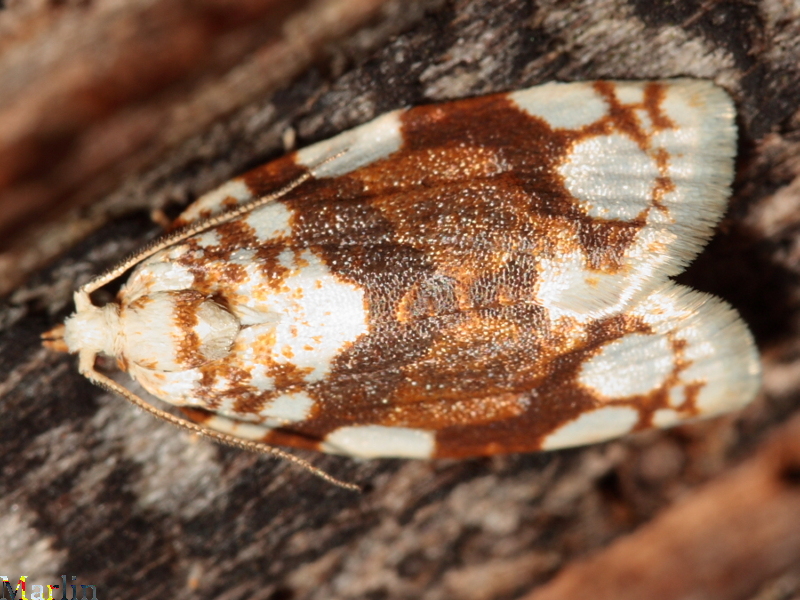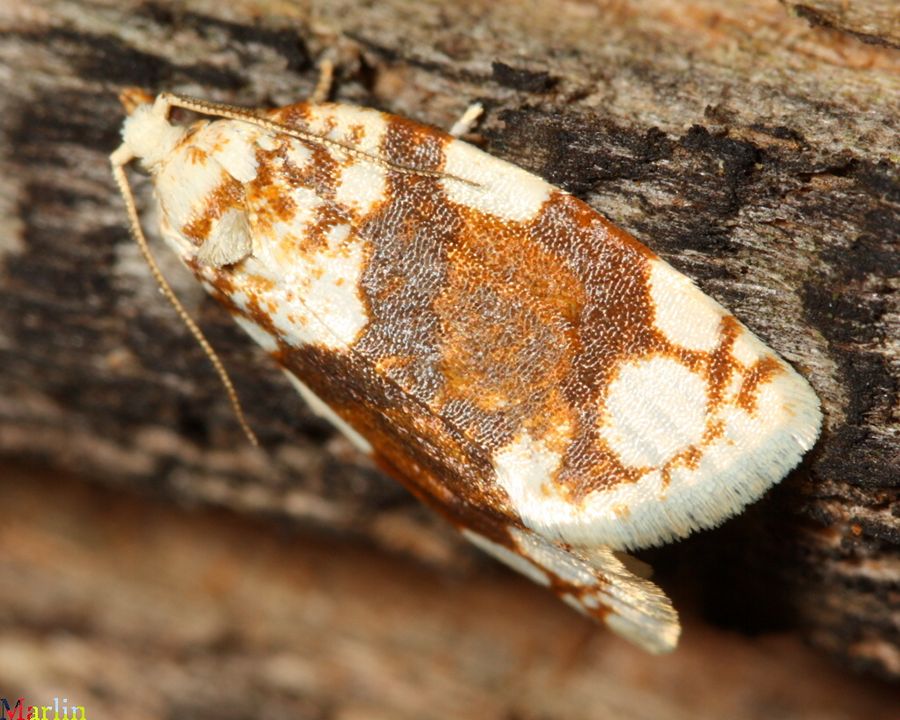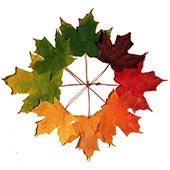| White-spotted Leafroller – Argyrotaenia alisellana Family: Tortricidae. The white-spotted leafroller feeds on trees in the family Fagaceae. Insects & Spiders | Moths Index | Moths | Butterflies Main | Butterflies Index | Skippers Live adult moths photographed at McKee Marsh Forest Preserve, DuPage County, Illinois. |
|
 |
| The white-spotted leafroller feeds on trees in the family Fagaceae, primarily white oak (Quercus alba) and Bur oak (Quercus macrocarpa).
Moths in the family Tortricidae are commonly called Tortricid, tortrix, or leafrollers, after their caterpillar's habit of shelter-building by folding or rolling the leaves of its host plant. Tortrix caterpillars employ a wide variety of feeding techniques, all damaging to the victim: root boring, fruit boring, seed predation and flower-feeding. While tortricids are known primarily as agricultural pests, a few have been used as biological control agents of invasive plant species. [1] |

References
|
|
Order Lepidoptera: Moths. Unlike the butterflies, moths are usually nocturnal. Many moths and their caterpillars are major agricultural pests in large parts of the world. Moths in the family Tineidae are commonly regarded as pests because their larvae eat fabrics, clothes and blankets made from natural fibers such as wool or silk. Moths in the genus Farinalis feed on stored grain, flour, corn meal and other milled grain products. Butterflies Main | Moths | Moths Index | Butterflies Index |
